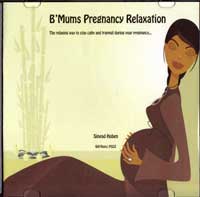Weaning a Breastfed Baby
Weaning a breastfed baby is something that all breastfeeding mums have to consider at some point! Current guidelines published by the World Health Organisation (WHO) suggest that breastfed babies should be fed only breastmilk for the first six months.
This will allow babies delicate systems time to adjust to solids once they are included in the diet. Because of increasing allergies, the risk of overloading babies systems and potential kidney problems due to high salt intakes in solid food, it was felt that six months was a more acceptable age for the introduction of solids.
Although breastmilk does not contain a lot of iron, babies have a stored supply which lasts for six months after birth. Realistically, six months is a long time to breastfeed exclusively and each mother knows her own baby best, so whereas one baby might happily wait six months for its first solid feed, another may only just make it to four months.
However, you really should try to breastfeed exclusively for six months. If you find it absolutely impossible, one solution is to try to give either stored expressed breastmilk or a light formula feed rather than solid food.
Introducing Solid Food
Whenever you do introduce solids, you should do so very gradually, starting off with something very bland - health professionals often advise baby rice which you can make up with breastmilk. This makes it easier to identify any food that may cause sensitivities or allergies.
At first you should only give one feed a day, starting off with just a teaspoonful. Over a number of days you can gradually increase the amount you feed baby and how often. Do not rush into giving large amounts as it may upset baby.
Once a solid food regime has been established, you can start to introduce a variety of foods and then progress to mixing different flavours and textures. Try introducing savoury foods prior to sweet tasting foods.
Babies tend to enjoy pureed carrots, broccoli, turnip and parsnip. They also love mashed bananas and strawberries. Experiment with different flavours and, later on, textures.
Never add gravies (high salt levels) or salt to food that the baby will eat. If you are preparing the food for a family meal, you should add these after the baby's portions have been removed.
Hard boiled eggs and bread can be given to babies from six months onwards. Breakfast cereals such as Weetabix and Readybrek can also be given from six months.
Eggs, nuts (particularly peanuts), and fish (especially shellfish) may cause allergies so introduce these with care.
Due to the risk of allergies, do not give your baby foods that contain peanuts until he is at least one year old. If there is a history of allergies wait until the baby is at least three years old. And there is a choking risk with nuts, so chop them up well.
Signs That Indicate Baby May Be Ready for Solids
You will recognise when your baby is not being completely satisfied when a number of signs occur. These may include some or all of the following:
• Lip Smacking or Chewing when he sees other people having a meal.
• Extreme Hunger when feeding and feeding much more regularly so much so that it is very difficult to keep the baby satisfied.
• Development of teeth is a sure sign he is getting ready to eat solid food!
The first six months of exclusive breastfeeding can often feel relentless but the incessant feeding will ease off once solid food is introduced. And the baby may even start sleeping for slightly longer periods both during the day and at night!
Once baby is weaned he most likely will require less breastmilk as he feels fuller for longer. However, it is still a good idea to offer a breastfeed before and after a meal. This will help to maintain your milk supply and ensure that your baby gets enough fluids.
Related Weaning Articles
Breastfeeding Videos:
Newborn and Infant Solid Foods
Articles:
Dr Jack Newman - Starting Solid Foods
Breastfeeding Stories - Child Led Weaning


